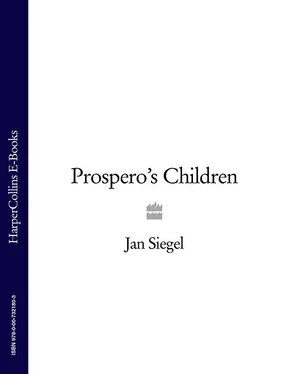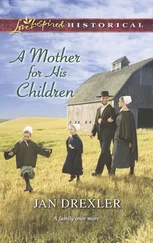‘The pictures.’ The man answered for her.
‘I’m afraid you must have found my daughter’s taste a bit—well, conservative. She’s a very down-to-earth young lady, you know. Likes sitters in portraits to have all their features in the right place, trees to be the proper shade of green—that sort of thing. Only abstract painter I’ve ever known her to admire is Mondrian. She says he’d make nice kitchen wallpaper.’
‘That would be a very expensive kitchen,’ said the man called Javier. Robin and the woman both laughed.
‘Daddy, don’t make me sound so boring,’ Fern said, wanting to leave.
‘Just a joke, darling. Oh—I’d like you to meet Alison Redmond. We’re definitely going to collaborate on the witchcraft book. She’ll organise several of the artists here to do the illustrations. It should be a big success. Alison, my daughter Fernanda.’
They exchanged a polite handshake. Close up, the woman was not so young: her face was long and pointed with an incongruously full mouth adorning its thin structure and pale narrow eyes between heavily mascaraed lashes. Her off-blonde hair was waist-length and worn loose. Had Fern not been too prosaic for such comparisons she would have thought her father’s future collaborator resembled a witch herself.
‘Terrific,’ murmured Ms Redmond. Possibly Fern imagined the same elusive mockery in her voice that she had detected in Javier’s smooth accents. For a moment, seeing her father standing between them, she was visited with the illusion that he was somehow trapped, hemmed in by two predatory figures, the man with his superior height and superior smile, the woman with her warmth of manner and coldness of eye. The impression of danger, though fleeting, disturbed her because it seemed out of all proportion to the actual threat. In the six years since her mother died Fern had monitored her father’s love-life with the skill of an international statesman, dismissing a succession of unsuitable candidates out-of-hand. The menace here was surely similar, the standard hazard of marauding huntress and hapless prey; she had dealt with it a hundred times, and she had never before experienced any doubts or premonitions. But then, Fern did not believe in premonitions.
Robin shook more hands in farewell, while she resisted an irrational urge to drag him away.
That was the beginning, she decided long afterwards. The meeting at the gallery, the sense of menace, the picture. The incident seemed trivial enough at the time but it left her feeling vaguely perturbed, as if the outlying penumbra of some far-flung shadow had brushed the borderline of her bright safe world, or she had caught a few isolated notes of an eerie music which would soon come booming from every corner of the universe, obliterating all other sound. The events of that extraordinary and terrifying summer became perhaps easier to assimilate because she was in some sort prepared: from the moment of that initial encounter an unfamiliar atmosphere began to seep into her life, unsettling her, unbalancing her cultivated equilibrium, making her vulnerable, unsure, receptive to change. She was sixteen years old, well-behaved, intelligent, motivated, a product of the Eighties in which she lived, viewing the world with a practical realism engendered by the early death of her mother and the responsibilities which had devolved on her as a result of it. Her father’s easy-going manner had acquired its undercurrent of anxiety from that time, left alone with a small daughter and smaller son, but it was Fern who had gradually taken charge of the household, trading au pair for housekeeper, seeing the bills were paid, bossing her surviving parent, attempting to boss her younger brother. She had coasted through puberty and adolescence without rebellion or trauma, avoiding hard drugs, excessive alcohol, and underage sex. Her future was carefully planned, with no room for surprises. University; a suitable career; at some point, a prudent marriage. She thought of herself as grown up but behind the sedate façade she was still a child, shutting out the unknown with illusions of security and control. That summer the illusions would be dissipated and the unknown would invade her existence, transforming the self-possessed girl into someone desperate, frightened, uncertain, alone—the raw material of an adult.
The day after their visit to the Holt Gallery they collected her brother from school and drove out of London to see the house. That was the next thing. The house. On the death of a distant relative Robin had inherited a property in a remote part of Yorkshire, and before putting it on the market his accountant had suggested he might like to take a look at it. ‘Good idea,’ Robin had responded. ‘Could do with a break. Nice for the kids. They’re a real pair of townies: need a taste of the country. Never know, might decide to keep it, do it up a bit, that sort of thing. Use it for weekends and holidays. Good idea.’ Perceiving too late the pitfalls ahead, his accountant’s heart sank visibly. Robin Capel had a flair for turning potential assets into costly liabilities. Fortunately, Fernanda could be counted on to veto the additional expense. Robin ran a small but lucrative publishing company producing coffee-table books of the type bought by the illiterate as a substitute for reading, but although he was an excellent editor with a genuine enthusiasm for the banal, financial management was beyond him.
‘We never take a holiday in England, Daddy,’ Fern pointed out en route north. We generally rent a villa in Tuscany in the summer and go skiing in France or Switzerland in winter. You can’t ski in Yorkshire and they don’t make very good Chianti. It just isn’t sensible to keep a place we’ll hardly ever use.’
‘You’re obsessed with being sensible,’ said William from the back seat. ‘Women go through life with a shopping list, and when someone gives them anything that isn’t on it—even if it’s something really precious—they simply throw it out of the basket.’
‘Who said that?’ Fern asked sharply.
‘Mr Calder. History.’
His sister shook her head. ‘You’re slipping, Will,’ she said. ‘Last time you made a nasty remark about women you attributed it to the English master. You can’t expect me to believe all your teachers are male chauvinists.’
‘Why not?’ he retorted, unabashed. At twelve, he was as tall as his sister and slight and supple as a whip. His face had that quality of luminous clarity, common to elves and angels, which the unwary so often mistake for innocence. He changed the subject without apology or embarrassment.
‘If Great-Uncle Edward barely knew you,’ he asked Robin, ‘why did he leave you his house?’
‘No one else to leave it to,’ Robin surmised. ‘He wasn’t really my great-uncle. Or yours. My grandfather’s cousin. Might make him my great-cousin, I suppose. Maybe a couple of greats.’
‘One will do,’ said Fern.
‘He must have been awfully old,’ Will mused.
‘Youngest of his family,’ Robin explained. ‘Lots of sisters. Story goes, he ran away to sea when he was a boy—merchant navy—and didn’t come back till they’d all died. Part of the Capel legend. Don’t know if that’s what really happened. None of the sisters married—unless some of them were widowed—anyway, there were no children. Ned Capel didn’t marry either. Overdosed on women at an early age, I expect. The sisters all lived in that house until they sort of faded away and then he came home and vegetated there too. Must have been about ninety when he died. The sisters were fairly ancient as well. Remember visiting once with my grandparents: I think I was about Will’s age. There were three or four of them left by then: Esme and Deirdre and Irene—don’t recall any other names. Esme—no, Eithne—they called her the baby. Seventy-five at least. Very small with a wrinkled little face all eyes, like a marmoset in flowered chiffon. “I made the seed cake myself,” she told me. Frightful stuff. Tasted of sand.’
Читать дальше












